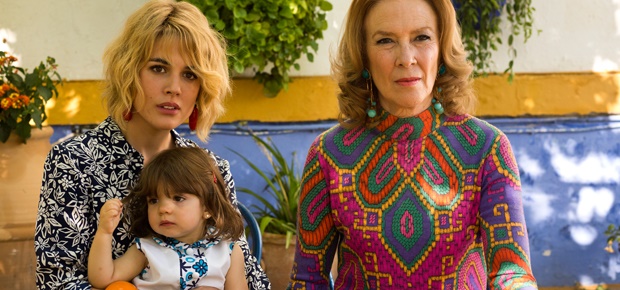
What it's about:
Julieta is a 55-year-old teacher. She writes a long letter to her daughter, Antía, trying to explain all the things she has kept secret from Antía over the last 30 years. When she has finished her confession, she doesn’t know to where to post the letter. Antía abandoned Julieta 18, and Julieta hasn’t heard from her in the past 12 years. She has searched everywhere, but now realises that Antía is now totally estranged.
What we thought:
Foreign-language films (i.e. not English) can have a hard time translating the essence of their story through subtitles, but Julieta transcends language barriers through its touching portrayal of a wife and mother’s loss, and all done with little tears. Spanish filmmaker Pedro Almodóvar, who won an Oscar for Hable con ella in 2003, has outperformed his previous work by focusing on how internalised heartache impacts our lives, instead of putting on a display of emotional theatrics.
As Julieta is about to move on with her life and out of town, she bumps into a friend from the past that has her spiralling back into the sorrow she was trying to escape, and relives the events that led to her daughter’s estrangement.
What’s so great about Julieta, is how the plot unravels to reveal little things that the audience has to piece together themselves, without the movie fully explaining it all. The transitions between the two timelines – young Julieta, her love and tragedy; and older Julieta, obsessed with finding her daughter – is seamless without confusing the story. Almodóvar knows how to weave a story, and made his own unique retelling based on three short stories from Nobel winner Alice Munro. His ability to also write and direct such strong female characters is a skill that eludes many male directors.
The two leading women who share the role of Julieta, namely Adriana Ugarte and Emma Suárez, are phenomenal actresses and they made you believe they are the same person. They were in sync in both their happiness and their grief, and even though the dialogue was in Spanish, you could follow the story by just their body language and the silent sadness the lead character carries with her throughout the film.
The film’s cinematography was also beautiful, not in the usual scenic landscape sense, but rather in the camera’s focus on people, their bodies, their interactions with others, their emotions coming to the surface. It didn’t feel intrusive, but rather like the characters were inviting the audience to share in their pleasure and their pain. The more Julieta reveals her story in her memoir to her daughter, the more enthralled the audience becomes until finally it’s semi-clear as to why her daughter left in the first place.
It’s no wonder Julieta is Spain’s submission to the Oscars for Best Foreign Film and it was also nominated for a Palme d’Or at Cannes. Although you’re more likely to find this film at your local arthouse cinema than the mainstream one, it will definitely be an enriching experience that will make you want to delve into Almodóvar’s other work, or just Spanish films in general. It might be a little harder to convince your less-artistic partner.




 Publications
Publications
 Partners
Partners











